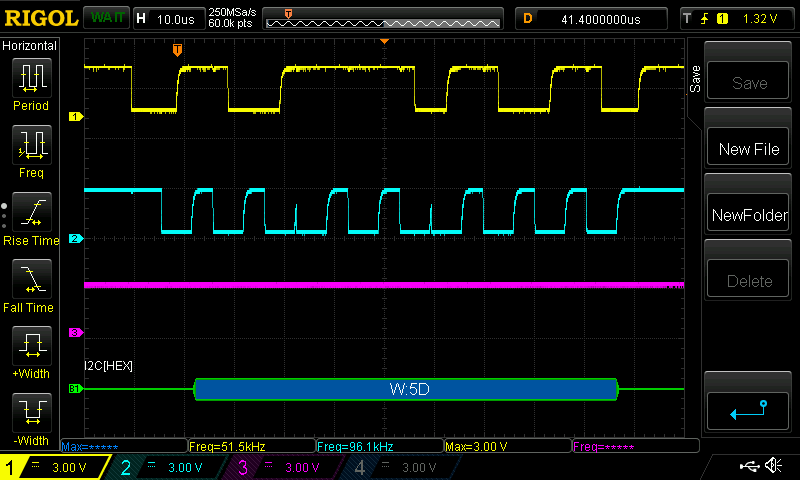Other Parts Discussed in Thread: CC3200
Hello,
I have been working with the CC3220MODASF module for a while now and I have not been able to get an appropriate I2C transaction due to what appears to be clock stretching. I am trying to replicate the CameraBooster pack design that was released for the previous version of the module, the CC3200. Here is the datasheet for the MT9D111 camera module that I am working with. Attached are two pictures, the first picture is the clock when the physical 6MHz clock going to the camera module is being generated by the CC3220 and then the second picture is when the clock used is coming from an external 6MHz source.
We have the CC3220's I2C set to be 100kHz as can be clearly seen from the oscilloscope screenshots.
Any quick insight into this behaviour would be appreciated. I have been struggling with this issue for a few months with a number of different camera modules.







